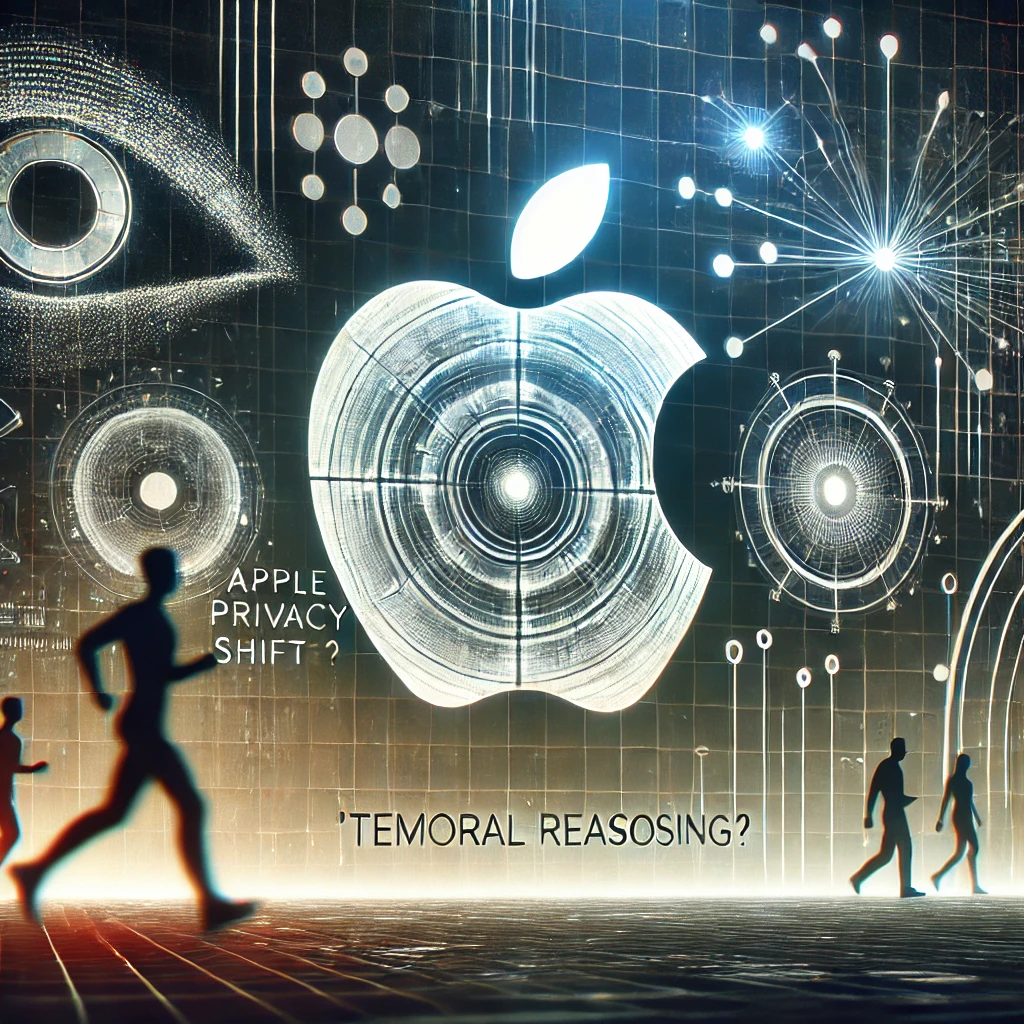Introduction: The History of Apple and Privacy
Apple has long communicated a clear message: “Privacy is a fundamental human right.” While other companies center their business models around advertising revenue, Apple has made user data protection a cornerstone of its marketing strategy, building trust with its users.
However, a recently revealed patent application for “Temporal Reasoning” has sparked discussions about whether this approach conflicts with Apple’s longstanding privacy stance.
What is Temporal Reasoning?
The patent outlines a system that maps users’ past, present, and future life events, offering a comprehensive understanding of daily activities, special occasions, and social interactions.
By processing data collected over time, the system could enable services such as:
- Personalized services tailored to the user’s lifestyle
- Targeted advertisements utilizing temporal and behavioral contexts
Apple’s Goal: From Hardware to Services
In recent years, Apple’s services sector has shown remarkable growth, as the company seeks to establish new revenue pillars beyond hardware.
For instance, the introduction of ads in the App Store’s Today Tab, along with successful subscription services like Apple Music and Apple TV+, demonstrate this shift.
At the same time, signs of Apple’s expansion into the advertising business are becoming more evident. The new “Temporal Reasoning” patent may indicate Apple’s intent to more actively pursue advertising as part of its service strategy.
The Contradiction Between Privacy Focus and Advertising
Apple’s aim to increase ad revenue is a natural evolution. However, the issue lies in the potential contradiction with Apple’s core brand value of “privacy first.”
Companies like Google and Meta (formerly Facebook) generate massive profits through targeted ads, but their data collection practices have often faced sharp criticism. If Apple were to leverage “Temporal Reasoning” to analyze users’ lives comprehensively, it risks damaging the trust it has built with its users.
Will Privacy Truly Be Protected?
Apple will likely emphasize its proprietary technologies, such as processing data on the device. However, the scope of data collection and its intended uses will become key points of focus moving forward.
Apple’s Next Steps
Apple’s foray into the advertising sector may be an inevitable move to enhance competitiveness. However, several key questions arise:
- Can Apple maintain its privacy-first brand image?
- Will the patented technology remain limited to on-device processing, or expand to cloud-based systems?
- To what extent will users tolerate Apple’s evolving services and data practices?
Apple will be required to provide highly transparent explanations to address these concerns.
Conclusion: How Will Apple Balance Privacy and Monetization?
Apple’s “Temporal Reasoning” patent is an innovative technology that enables a deeper understanding of users’ lives, offering personalized services and advertising. However, reconciling the contradiction between its “privacy-first” value and the goal of increasing advertising revenue remains a significant challenge.
Apple has historically prioritized both technological innovation and its brand image. Whether this technology is perceived as “convenient” or as “surveillance” will be critical—and closely watched.
Final Thoughts:
If Apple is to uphold its belief that “Privacy is a fundamental human right,” the responsible use of this technology and clear accountability will be more crucial than ever.

